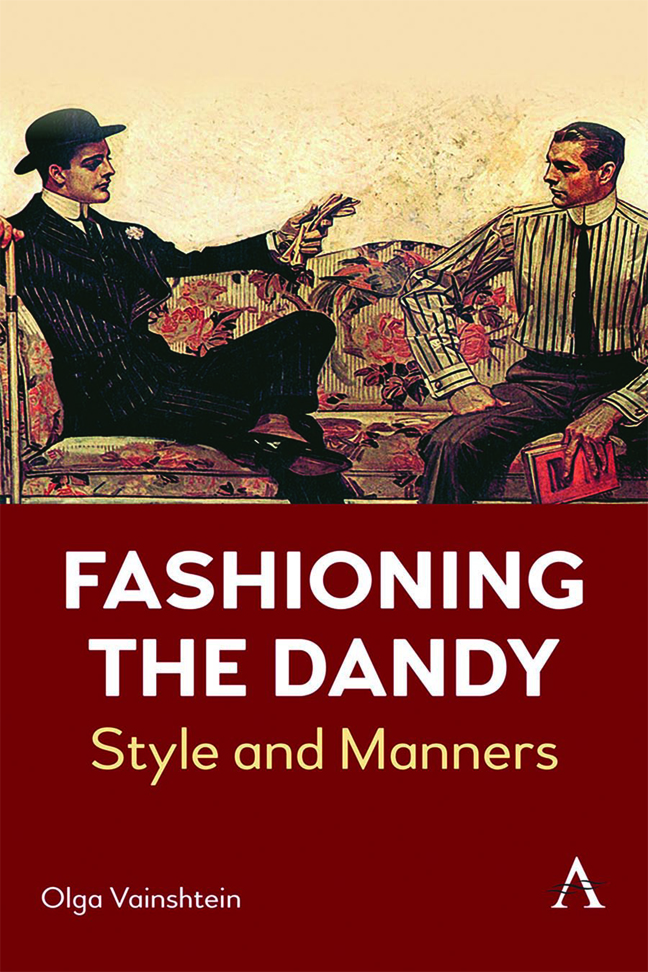Book contents
Conclusion
Published online by Cambridge University Press: 29 February 2024
Summary
‘Entelechy’ is a philosophical term meaning the realization of a thing, usually to the potential immanent to it. Could there be an entelechy to the dandy? The first objection to be raised to this question is in the famous warning made in the first treatise on the dandy by Jules Barbey d’Aurevilly, that the dandy is vexingly hard to define. True enough, the dandy is the definition of a sartorial class – and a mode of being – that resists archetypes and reducible elements. But has the dandy evolved, like some organism, to define itself more promptly and more acutely?
In the cultural frame of nineteenth-century dandyism certain strategies were developed which assured this entelechy – actualization of dandyism as form-giving cause, smooth functioning of the dandy style in the future. In order to comprehend the contemporary developments of dandyism we must briefly outline the following strategies:
(1) Dandyism arose as the wave of Modernity swept over society, when fixed professional and social roles had broken down and upward mobility and the ability to adapt and switch had become a condition for success. The strategy of effective selfpresentation and the principle of chameleonism legitimized changes of social masks and helped ambitious young people move upward. The inner connection between dandyism and modernity is evident in the fact that today as well dandyism is inseparable from modern urban culture and all its institutions – cafes, flânerie, advertising, and shopping.
(2) Another strategy is the ability to keep a distance that emphasizes the restricted access to the circle of the selected affiliates. The dandy always skilfully underscores his membership in an elite minority, whether the closed circle of the aristocracy or Bohemia. This is the source of the cold politeness that can instantly change to irony. Inaccessibility, snobbery, and the strategies of refusal are the instruments for maintaining an estranging distance. The Guermantes did not immediately invite the young Marcel into their home, and Beau Brummell was a master at ‘not noticing’ unsuitable people.
Connected with this is the standard criticism of vulgarity as consisting first of all in easy accessibility and second, excessively crude and direct strategies to create an impression. A liking for proverbs and loud colours in one's dress (an attribute of vulgarity according to Lord Chesterfield) could be compared to head-on statements, whereas the dandies’ indirect messages are far more effective.
- Type
- Chapter
- Information
- Fashioning the DandyStyle and Manners, pp. 233 - 238Publisher: Anthem PressPrint publication year: 2023

